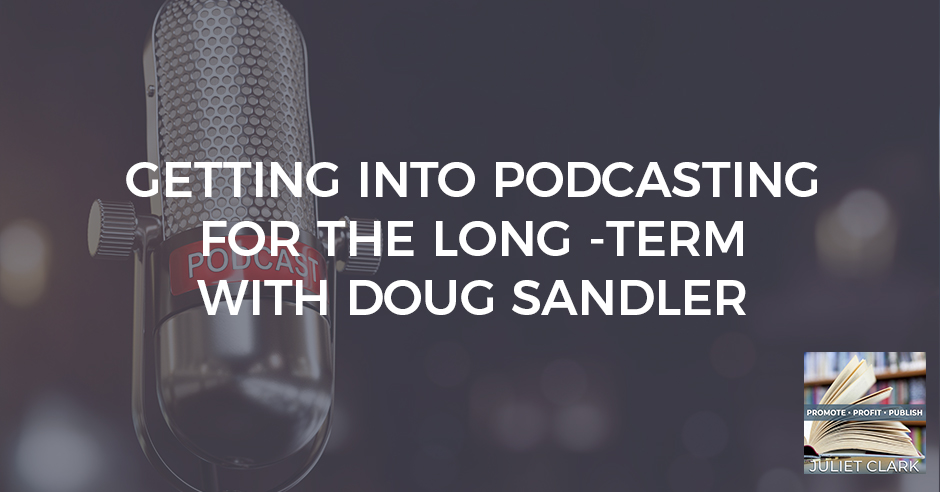
Podcasting is undeniably the largest growing medium out there. Many businesses and individuals are considering to take a jump into this platform and spread their messages into the world. However, the path to getting there is long-winded and challenging. Here to share his own journey and offer some advice to kick-start your podcasting, and staying for the long-term, is the host of The Nice Guys on Business podcast, Doug Sandler. He talks about the different motivations that come from starting your podcast, along with the ways to monetize your show and reach your community. As the Founder of TurnKey Podcast Productions, Doug also shares the different podcast production services they offer and then guides you on the steps you need to expect if you are brand-new to podcasting.
—
Watch the episode here
Listen to the podcast here
Getting Into Podcasting For The Long – Term With Doug Sandler
My guest is Doug Sandler. He is an entrepreneur and podcast industry leader. His book, Nice Guys Finish First is the number one ranked Amazon Best Seller. As a podcast host of The Nice Guys on Business, Doug has interviewed Gary Vee, Arianna Huffington, John C. Maxwell and dozens of celebrities. He is a nationally recognized speaker, writer and Founder of Turnkey Podcast Productions providing podcast production, editing and launch services. The Nice Guys podcast with over 1,000 episodes has been downloaded 3.5 million times in 175 countries.
Doug, welcome.
Juliet, thank you so much for having me on your show. I’m excited to be here. It’s very rare that I get the opportunity to be on this side of the microphone. I’m always on your side of the microphone doing the interview, thank you for having me here.
We’re going to change that, Doug, because you’ve got to get out and be interviewed more. You’re good at it.
Thank you so much. I enjoy being able to.
I want to talk about this a little bit. I shared with you that I was in an event and out of 40 people at the event, 30 of them want to be podcasters and that requires a transition and sometimes a whole makeover. Tell us about yours and how you got here?
I rarely get to talk about the 2013 career reinvention. I spent 30 years before that as an entertainer. Not the entertainer that you may be familiar with. I was an emcee at 2,100 Bar Mitzvahs in my career. I don’t even know how to entertain kids and adults. It’s 150 people. That’s 3.9 million people that had been to my events.
Do you have Hava Nagila?
If you're not flexible in listening to what your market says, then you're missing opportunities. Click To TweetYeah, The Hora. There were many songs and I love the career. I still have, even though I stopped taking active bookings back in 2013, I’m watching that career. The DJ business slowly fades, but my podcasting business has boomed, my production company. On the other side of it, I still do a few of them a year. I have more fifteen on the books until the end of 2021. These things got booked out in advance. When I started looking at this career reinvention, I started thinking about, “What am I going to do to carry over to this next level in my career?” In 2013, it was that pivotal for me to decide what is the next step for me as a guy that built a successful mobile entertainment business, we did anywhere between $2 million and $3 million every year with that business. Hiring people to do the same thing that I did. I wanted to take all the skills that I had learned in that business and translate them into another business. That’s what brought us to this new career reinvention.
You’re a DJ. You already had the voice from this. You stepped into it, but you didn’t expect the success you had. What was that like?
I had no idea what even finding a new career was all about. I spent years as a Bar Mitzvah emcee building my business, knowing that I had the skillset in business to succeed, but not knowing how that translated into anything else. We set a path to try to find this new career and I didn’t know what it was. The catalyst for it was a conversation I had with my financial planner. He said, “What is your plan for the rest of your life?” That’s a heavy conversation to have but he was right. He said, “You probably are not going to want to be out there doing the Cha-Cha Slide and The Electric Slide at 65 years old. Do you have a plan for that?” I thought, “I don’t, but I should start thinking about it.”
That was in March of 2013 and in August of that same year, I saw this guy speak from the stage. His name was Ryan Estis. It wasn’t what he was saying, but how he was saying it that was captivating to me. I thought, “I could do that guy’s job up on the stage. I could be dynamic. I could have a personality, I could share a message with an audience and I could become a professional speaker.” At that point in my mind clicked, I walked up to Ryan at the end and I said, “What do you do and how do you do this?” He said, “You got to hire a speaking coach if you have no idea how to do it.” That led to hiring Jane Atkinson, who did a good job with The Wealthy Speaker, a wonderful job of helping me put my message together, pick a lane and develop my platform, everything that was involved in developing my speaking. She dropped a bomb on me. The bomb was you have to be able to write a book.
We had this conversation and maybe this was not the ideal advice for me at the time because I write a book, I have this other path that I have to go down also. That’s all I knew at the time. That was before I met Juliet. I wrote this book and the key to me writing the book was how am I going to promote the book? I went to a friend of mine and he said, “I know there are a few options. You can hire a PR company, a publicist and an agency.” I started looking at some of the prices for these agencies and they were charging $2,500 to $5,000 a month to promote my book. I was thinking, “At $2 a piece that I’m making from my book on Amazon, how many of these do I have to move?” Fortunately, I moved a whole bunch of books, but I discovered in the process that I love this platform of podcasting because me and this friend, Strickland, we created this podcast called The Nice Guys on Business in February of 2015 to promote the book.
I was often running because I didn’t have a static book that was sitting on a shelf. I had a dynamic platform where I could share a constantly evolving message and I could figure out a way how to network with some cool people. That was the creation of a podcast. It wasn’t until many years later that we made the shift from a professional speaker and author to start a production business. Many people were coming to us, our market was shouting at us, “We want you to teach us how to do what you’ve done with your podcast to start our podcast.” That was the creation of Turnkey which is our production company that has eclipse any speaking and writing that I’ve been able to do over the years.
One of the reasons I brought Doug on is the event that I was at, there were many people who wanted to get into this. It is the largest growing medium out there. In a lot of ways it’s cool because many years ago, the only way your voice was heard, you’ve got to be a star or whatever. What you did was you needed an agent. There was a path and now anybody can do it. A lot of people and I’ve had some of my clients do this, they started on their own and they get caught up in companies like Anchor FM and places where they don’t know how to monetize. They don’t even know if they own their content. How do you avoid that? How do you sit down and have a plan for where you’re going with all this?
I love that you asked that question because that’s the thing that’s void in most people that are wanting to get started. They think they have an idea behind what they want their show to be about. While that is important, it’s not as important as what is your goal for podcasting. The first thing that we do when we sit down with a potential client and the first thing that we do in sharing any ideas on shows like this is we say, “Do you have a goal?” If you had to pick from one of these three goals that I’m about to tell you, which one is the priority? Do you want to build influence in a community? Do you want to grow a community or do you want to make money?

Podcasting For Long – Term: If you treat podcasting like a hobby, you’re going to get hobby results. You treat it a real business, and you’re going to get business results.
Normally somewhere in there, all three of those are goals for somebody’s reason for getting into podcasting. What it comes down to it is which one? If you had to pick a strategy or a goal for getting into podcasting, what would it be, money, influence or community? Based on that answer, we can develop a plan. You’re a guy that’s an accountant and you want to share your accounting message with the world. Do you want to do it to become a go-to source for information in the accounting world? Do you want to do it because you want to grow your community so that you can provide the products and services to a large community? Do you want to do it to go to the bank? Either one of those is fine. There’s no four-letter word in money. That’s why I got into podcasting. I wanted to make money and not spend money instead. I always start with, “Let’s come up with a foundation. Why do you want to get into podcasting, to begin with?”
I’m going to share something that you probably don’t know. Back in 2014, 2015, I had a podcast called Ask Juliet. I went into it with none of those things. I would say that I had 1.5 years’ worth of episodes before I podfaded because the model that I unconsciously chose without choosing didn’t work. I realized that.
It’s funny you said 1.5 years because 1.5 years into our run, seventeen months into our run of podcasting, we had probably a couple of 100 episodes because we were doing more than one episode a week. We had made zero dollars in it. Strick and I had this hard conversation and he was my cohost and my partner. We said, “Is this worth continuing?” We enjoyed it so much that we wanted to continue even if we weren’t making any money. Yes but on the other side of it, we wanted to develop a strategy. The beautiful thing is it wasn’t until an event that we went to called New Media Summit that we developed a strategy of monetization that hit a homerun.
From that point on, we turned the gain on and the revenue started flowing. We had to make a decision and until we knew that we had to make a decision, we didn’t have a plan in place. We were like, “Let’s show up on Tuesday and talk about business and interview successful people and see what happens.” That’s not a good strategy. You need to have a plan in place to monetize. Once we finally set in place the plan to monetize, often run in the race and then other people notice this because we would share that with people that would come on the show and with friends that wanted to get into podcasts. They’re like, “Could you teach us how to do this?” Our first client is a guy named Lou Diamond. He created a show called Thrive LOUD.
He is such a flag-waver for us. This is the reality of where his business has gone. He said in the first two years of putting his podcast together, he’s made over $300,000 with his show. For us, we look at that and say, “It’s not only good and something that works for us because we made well more than that with our show.” We thought if we can do it, can we teach anybody else to do it or is it a fluke for us? He’s done it as well. There are several other people on our client list that has made a home run. If you treat it like a hobby, you’re going to get hobby results. You treat it a real business and you’re going to get business results. He took it in as a part of his entire business model and has done extremely well with it as we have too, fortunately.
I think it’s fabulous and I don’t want to say tripped your way in, but you had something successful and then decided, “Can I teach others?” That’s what I did with the publishing as well. It’s a good model when you know what you’re doing.
Keep this in mind, as you’re reading Juliet’s message and she’s sharing it on her show, remember this, if you’re inflexible with how you present your message and how you get your business, then you may not have positive results. If you’re flexible to listen to what your market says and if your market says, “We want an online course,” and you’re like, “I don’t know how to build an online course, I’m not going to do that.” If you say that and ignore that, you’re losing dollars. You’re missing opportunities. Listen to your community and in the beginning, it was such a small community. We had a handful of people that told us that they want this from us. I even said to Lou, who was our first client, I said, “Lou, I want to do this but I have no idea how to charge you for it. Can you help me come up with that?” We had a planning session where we decided on $1 amount and we thought it was fair for us. We thought it was fair for him. Again, we were off and running and we have developed a system and a strategy for how to find shows or how to build shows that make money, influence, and community. Those are the three reasons people get into podcasting, to begin with.
I’m part of a mastermind that they’re testing. It’s $97 a month. I feel like I’m getting more out of it than I am from the things I’m paying $700 or $800 a month for. It’s cool to test it out like that and see the value too. You’ve got that exchange of, “Give me feedback for a little bit of money.”
You're going to be bad before you're good. Click To TweetWhat I share with the people that are in your community, it doesn’t mean that you have to completely shift careers from one career as a professional speaker to a podcast producer. That wasn’t my goal but I looked at it and said, “If I can sit at this microphone, and every time I open up this microphone, I make $5,000 or I could travel across the country to make $5,000 to $10,000 and spend three days doing it back and forth by professionally speaking, which one would you rather do?” Some people might say, “I’d rather travel across the country. It’s fun, exciting, romantic or whatever.” I’m like, “I go on this adrenaline high for 45 minutes to deliver a keynote speech. It took me a day to get there, a day to get home. Hotels where I don’t want to be, having people breathe on me that I don’t want to. I’d rather sit in my pajamas and make the same money from my house. Why not do it that way?” You don’t have to do that. You can use your podcast as a tool to grow your speaking business. You can use it as a tool to grow your platform, to grow your influence and to build your community that will and turn to hire you to go out and speak at their events. There is a nice fold in there for how you can use podcasting as an effective forum to share your message with your community.
One of the things that I do with my show is after I have an appointment with someone, if they haven’t purchased, I know where their weaknesses are. I can drop a show into the thank you note and say, “I hope this helps you get to where you want to be.” If I do that enough, usually, I’m showing them, “I have a great deal of knowledge in this area and I’d love to work with you.” There are other benefits to having that show. There is great content that you can drip out in different ways.
You gave me a marketing idea that I’ve never even used. The beauty of it is we’re always learning new ideas, “How can I market my podcast production businesses?” I do have a strategy oftentimes of the people that come on my show, they’re great messages and they can share with my community and help share a wonderful message. I find oftentimes that they’re also the same people that become clients. Professional speakers that are listening to Juliet’s show now, imagine bringing somebody on as a guest on your show when you develop a podcast and even without a big audience, even with a tiny audience. You don’t even need an audience to do this. Imagine having somebody come on your show that not only has a great message to share with your community of people that you’re building in your audience but is also in a position to hire you, to come into their conference, to share your message with their audience.
Now, you’ve had an opportunity to build a relationship with them for 60 minutes on a show. At the end of the show, you can say, “I love sharing your message with my community and I’m not even sure if you’re in a position to put me in front of your community, but if you have events, I would love to be able to speak in front of your community.” Oftentimes the events, the people I’m getting business from are the people that were sitting in that guest chair because I’ve had a chance to share a little of my personality. They can see what I’m about.
I dropped a few nuggets of my wisdom during my podcast or the fact that I have a book or that I’ve been a professional speaker. It doesn’t hurt. You’re shifting from talking to your guests to talking to your community for a second. With The Nice Guys community, this is what I’ve been talking about all the time. The Nice Guys return your calls and your emails. You’re on time for your appointments. You’re reaching out and then they’re like, “Maybe this guy is somebody that would be able to share a message with my community. It’s a great message.” I haven’t even directly talk to them. I’ve talked to my community and then shifting back to them again. There is an ideal way to present and that’s all a part of building your strategy and how do you communicate. You don’t think there’s importance in how you develop your question and answers for your show. There is because that will help you engage that guest even more and see if they’re potentially in a position to hire you to do your thing in front of their community.
I don’t want you to limit this but think about this. Doug has podcasting and he can do that in the podcasting world. I have my Quiz Publishing. I know a guy who is a high net worth investor and exit strategies, things like that. He has a hunting show and he interviews CEOs, CFOs and companies who are hunters. He got his foot in the door of their company with not even a related podcast.
You don’t have to have a message that is lockstep with your guests that comes on the show. Let me share this, you never know where your next opportunity is coming from. If you think that it is as a professional speaker, if you’re a speaker, an author, a coach, or a consultant and reading this blog, if you’re an entrepreneur, be open to the possibility that anybody coming on your show as a guest or anybody in your community that’s reading could potentially be a partner in business moving forward. We’ve made hundreds of thousands of dollars since we’ve hit a stride of what this business is all about with Turnkey.
We’ve developed a huge line of business with joint venture partners that are the best opportunity. They’re doing all the marketing for us because we’re not a marketing company. We’re a production company. They are marketing companies and they do a great job and they want to white label our services. Keep in mind that no matter what your services are, they don’t have to be podcast production. Fill in the blank, whatever you do, develop a joint venture partnership with those that are sitting in the guest chair. Those are sitting in your community, other podcasters that have similar desires that you do to build your business. You’ll be amazed. It’s an instant network that you connect with. That’s the beauty of this.

Podcasting For Long – Term: If you’re inflexible with how you present your message and get your business, then you may not have positive results.
Can you explain to those people out there who don’t know white labeling? I do the same thing. Explain that a little bit.
I’m going to share a weakness of mine and this is how we originally got together and how I’m fascinated with the tools that you use. I am not a great marketing company. We have a team of seven and none of us are marketers. I’m a relationship builder. I’m good at closing deals, but I’m not good at getting the phone to ring. For me, I want a company that’s out there as a joint venture partner that is a great marketing company and many of them are agencies. They’re marketing companies that do have affiliate relationships and that’s exclusively what they’ve done. I’ve connected with several companies that are out there that have great affiliate relationships, but they don’t have any products or services of their own.
What we do is they market for us, they earn an affiliate commission and we are them. We’re part of their team. When a client hires them to do podcast production, we white label our services, we represent their company. Our company, Turnkey, is invisible to the end-user, which is fine. We’re not hiding but they want it to be represented as their company and it’s not dishonest. It’s quite popular is a way to do it. They want to expand the full services that they offer. Some white labels want us or are okay with us sharing our company’s name with the clients but they want us to represent their organization and that’s fine. White labeling is nothing more than providing the products and services under their brand and they’re representing our brand out there in the world as a marketing tool.
In the case of Doug, you’re probably talking about PR companies who are bringing people in. Do they want podcasters, marketing agencies that have a full package?
A PR company will come to us and say, “We have a great system for putting people in front of other people, but we don’t have a delivery tool for that vehicle. Would you white-label your services as a network of podcasts so the people can come to our agency?” They know when they hire us. We’ve launched over 100 shows and 50 of them or so are probably still majorly active in the podcasting market. We have a network of 50 shows that we can promote to the clients that they had said, “If you hire our agency, meaning that PR agency to do your PR, we’re going to include these 50 podcasts that you have an opportunity to go on and present your message to and whichever ones fit in the game of whatever subject matter that you talk about.” There might be twenty of them that fit. That’s instant media coverage for it and the New Media space is great to do. People are willing to hop on board with that agency if nothing else other than the fact that they’re going to get on our network of twenty plus shows.
What I can expect if I’m brand new to this? I’ve sat down, I’ve worked out my strategy, what do I need to get started and what do I expect? Is it easy-peasy? What all is entailed?
You can always do what most people do when they first get started. Go to Google, research how do I get started podcasting? You’ll find 700 ways, if not more, the 27 Easy Steps to Get Involved in Podcasting. It’s like, “I’m pulling my hair out doing cover art.” It’s like, “Which approach do you want to take? Do you want to have a DIY approach? Do you want to have a DIY plus some handholding? Do you want to have a white glove and concierge service?” Depending on the level of service that you’re looking for when you start podcasting would dictate number one, how much you’re going to spend in this and secondly, how much work is going to be involved?
We have an online course, but we felt like the online course, it does a disservice to people that want a little bit of assistance because it’s an online course. We said instead of offering a course and no support behind it, we do a 60-minute discovery and strategy session before they get started in the course. They go through the course, which is Seven Easy Steps to Launching a Podcast. We do a 30-minute prelaunch checklist to make sure that they have everything in place. It’s the best of all worlds. All the way down the line, we have this concierge service. The concierge services call us. We’re going to do the discovery call. We’re going to take care of everything in the middle and then we’re going to launch your show for you and 30 to 60 days you have a show on the other side of it that launches.
If you follow your community, you're following the money. Click To TweetYou have a marketing plan. You have an entire strategy laid out, whether it’s influenced community or money. You have an entire plan. You have the editorial calendar that’s laid out for you. The only thing that we want people to do in that concierge service if they’re doing an interview-based show is making the recording, send it to us and your job is done. For many people, they’re willing to pay for that because they have successful businesses already or they’re trying to build their other business. This is one tool in their business, in their bag of tricks and they want a show to help promote their speaking business, their book, or consulting business, whatever it is that they have as a service.
I mentioned Ask Juliet, I would probably still have that show if I had hired a concierge service because it was taking up a good 5 to 6 hours of my time a week between getting guests and editing, which I’m not good at. Now, I have one and it’s as easy as I’m interviewing Doug here. I will upload it when we’re done and the finished product comes back to me. I don’t worry about it. I get it right away. It’s done.
The beauty of that also is that your content is out there in the world and people can tune into your show. You want to have a way to promote your speaking business or your book or whatever it is that you do. Create a podcast episode about what you do. How you do it? How does the process work for you? Every prospective client that calls for you, send them a copy of that episode. They get to listen to it in their car while they’re working out, while they’re walking their dog, doing the grass. It’s a great opportunity for you to show your personality and share any of the goodies that you have. It’s not even a sales call. It’s that now you’re a star in somebody’s ears. I love the idea when people come to the show because we have now been around for many years. We do have 1,000 plus episodes and because I’ve interviewed some top names. People sometimes come on our show and I have that little bit of star-struck feeling and I’m like, “Relax, everything is cool.” All we’re doing is creating content and we’ve developed a successful business from it, which is what most people can do if they follow the strategy that we layout for them.
It’s fun. I meet many interesting people. I have a strategy that I use over on LinkedIn and half the people I meet will never be on my show. I will never be on theirs but when we talk about their podcast like, “Who knew there was a whole show on chocolate?”
There are podcasts on everything. You can go and say, “I want a podcast for funeral home directors.” Believe it or not, there are many shows. I don’t know what they talk about. I’ve never tuned in, but I can only imagine that for every type of business, if you think, “My business is unique and this isn’t going to work for me.” If you’re a speaker and you’re thinking, “My business is unique, this won’t work for me.” Can you call me because I’m telling you the idea behind it won’t work for you is silly? This will work for anybody, which is partly why many people are getting in podcasting, which is also why many people fail and quit at podcasting. The term is podfade. Twelve episodes or less, I would say a good 90% of podcasts have not released an episode in 90 days, which means they’ve suffered from podfade. 85% of podcasters that are out there are not making any money. The other 15%, a small sliver are making enough money to build a living and create a lifestyle for them.
Our job is to teach you how to build a lifestyle from your show. Not how I have this other thing on the side that’s going to be a time suck for me. That’s not a success for me. I want it to be successful for our clients. If you tune into the coaching that we provide and you tune into the strategy-building that we do, you will succeed. We are not special. I can promise you I am not special at this. It was something that I was silly enough to stay in the game long enough to make it work because I was determined. I’m like, “This is the best thing I get to share my voice and my message on a show rather than this blog that I dread writing every week.” This podcast has been an opportunity. It’s been a huge moneymaker and I love the opportunities that it’s provided me.
If you have any doubts about, “Is my idea valid?” Put a pitch together and go to one of those events. Scott Carson had the Mass Media or the Pecha-Pod or Steve Olsher’s New Media Summit. Almost all of them have pitch fests now. If you have any doubt about, “Will this idea sell?” Pitch it in front of a bunch of people and see what the response is.
I have a client who is in the paralysis through analysis mode. She had an idea. She released five episodes. She didn’t love the episodes. She froze because she was thinking, “I hate this. I don’t like this. Nobody’s responding.” I’m thinking, “You’ve given these five weeks. Could you be a little less harsh on yourself?” As you’re reading this and if you are a professional speaker, and we come back to this because I can relate certainly to the professional speaking environment because I am and I was one for an extended period full-time. Think about how bad you weren’t until you were good. You’re not going to be great when you come out of the gate podcasting.

Podcasting For Long – Term: Podcasting is a great opportunity for you to show your personality and share any of the goodies that you have.
We weren’t good. I reposted our episode number one many years ago and I listened to it. I’m like, “This was horrible.” Our community wanted to hear it again as a bonus. We threw it out there so they could hear it. It is amazing how many times we’ve pivoted, shifted and adjusted our philosophy and our strategy because we see what direction our community wants us to go in. If you follow your community, you’re following the money. That’s what we wanted to do, to make money from our show.
My suggestion for all my clients when I work with them is to give something a year because you have to give it a fair amount of time unless Periscope goes out of business. I was shocked. I was on some show and hearing that Periscope is still out there, I didn’t even know that.
I remember when Twitter first announced that, I’m like, “That sounds cool.” Either Facebook had done it right before or after that or something. I’m like, “Here we go again. Here’s another opportunity out there.” If you stay true to your message and idea of why you’re getting into podcasting, to begin with, you can always pivot at a point. Stay true in the beginning, stay right where you are. You’re going to be bad before you’re good. As long as you know that and aware of it, just continue on.
I want to tell you something about Periscope. When I did my first one, I got off and I was like, “I’m never doing that again. I was horrendous.” In the beginning, I don’t know if it still does it. If somebody that you’re connected to gets on Periscope, it’ll notify you. I was sitting at my computer and some people I know got on, they were real estate people. Right in front of me, they knocked the microphone off because one of the guys talk with his hands, they were all under the desk. You could hear them cussing all over the place. I thought, “I’m a rockstar. What the heck was I thinking?”
For the professional speakers that are out there, you have an advantage over many of the people that are starting podcasting because you’re on stages all over the country, all over the world and it gives you the opportunity to share your message. Imagine doing a keynote every day, but it’s an ever-changing keynote. Go listen to my 1,100 episodes or 1,050 episodes. It is amazing how many different messages that we can get out there. I’ve created some keynotes as a result of my podcast because I now have a podcasting production platform that I can share a keynote, Five Ways to Make Money Podcasting or whatever it is, build influence, make money or grow your community. There are some creative ways that you can use podcasting to build your platform as well.
Doug, where can we find you?
The best place for me to send your community would probably be to go to TurnkeyPodcast.com/DIY. If you go there, you’ll get a little bit of a taste of what our Do-It-Yourself Program is all about. Certainly, click on the Contact me page. If there is some more information that you want, I can do a free consultation. If you have some more information about how to build a strategy, how to take a deeper dive into some of these things, kick the tires and see if podcasting is for you. The first place to start would be on TurnkeyPodcast.com/DIY. That way, you can even see if podcasting makes sense for me. If you feel like it makes sense for you, then we’ll put together a plan for you to build a show.
Thank you much for being on.
It’s my pleasure. Thanks, Juliet, for having me.
Important Links
- Nice Guys Finish First
- The Nice Guys on Business
- Turnkey Podcast Productions
- The Wealthy Speaker
- New Media Summit
- Thrive LOUD
- TurnkeyPodcast.com/DIY
About Doug Sandler
 Doug Sandler is an entrepreneur and podcast industry leader. His book, Nice Guys Finish First is a #1 ranked Amazon Best Seller. As a podcast host of The Nice Guys on Business, Doug has interviewed, Gary V, Arianna Hungton, John C. Maxwell and dozens of celebs.
Doug Sandler is an entrepreneur and podcast industry leader. His book, Nice Guys Finish First is a #1 ranked Amazon Best Seller. As a podcast host of The Nice Guys on Business, Doug has interviewed, Gary V, Arianna Hungton, John C. Maxwell and dozens of celebs.
Doug is a nationally recognized speaker, writer, and founder of TurnKey Podcast Productions, providing podcast production, editing and launch services. His Nice Guys podcast, with over 1,000 episodes has been downloaded 3.5 million times, in more than 175 countries.
Love the show? Subscribe, rate, review, and share!

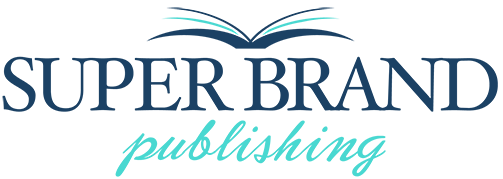

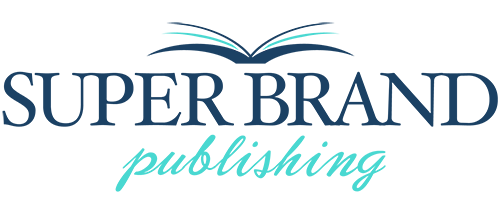
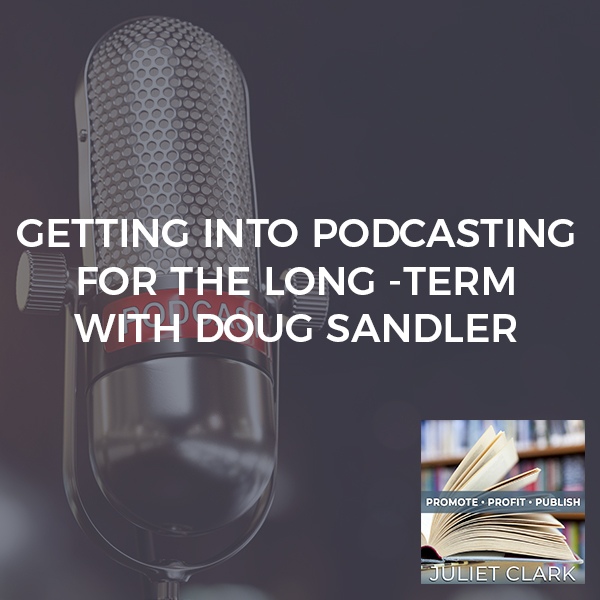
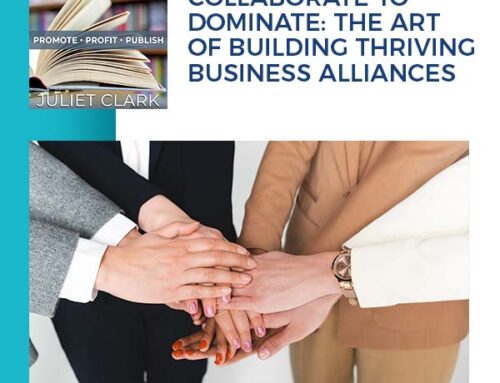

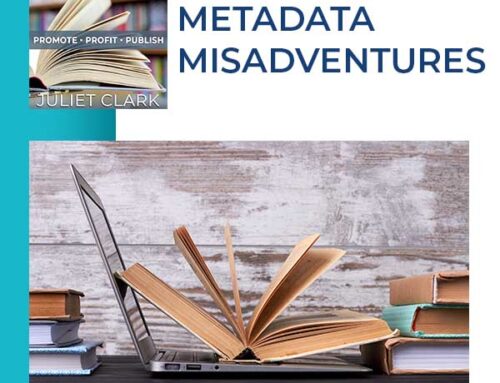
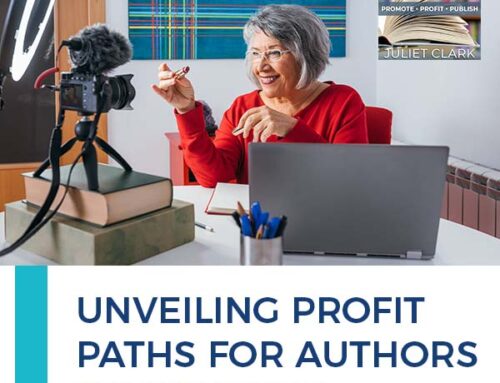
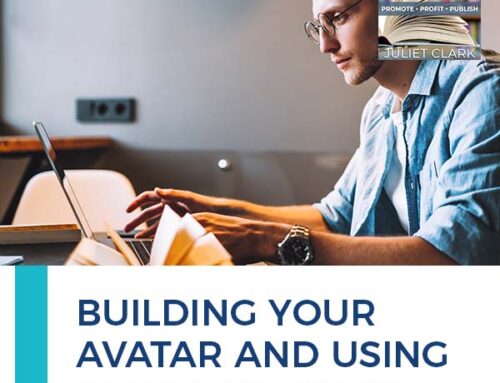
Leave A Comment